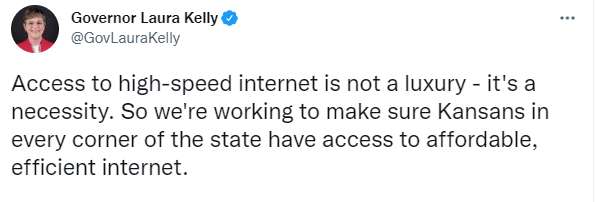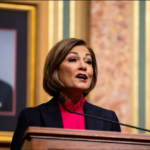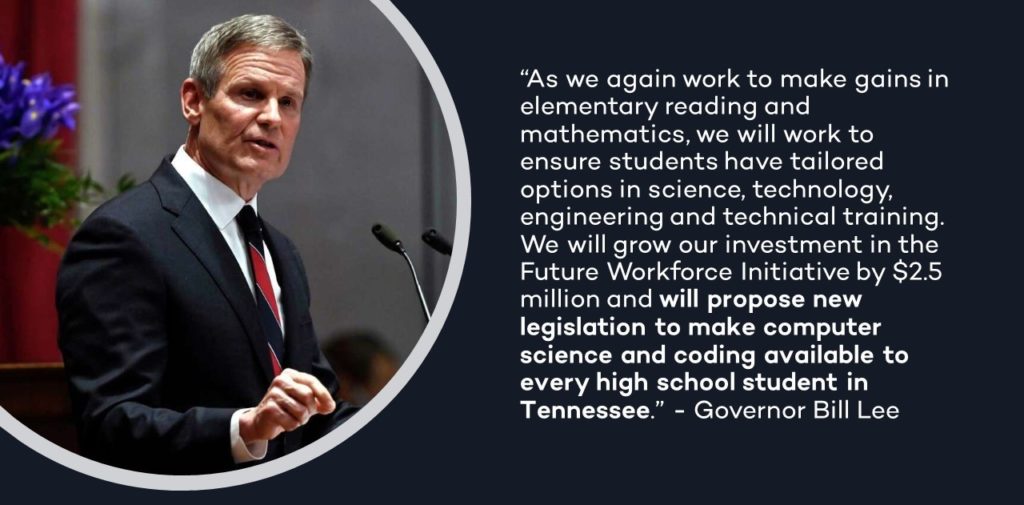Governors discussed the current state of the digital divide and emphasized the importance of increasing digital literacy in K-12 education during their State of the State addresses.
By Catherine Van Ness

National Governors Association Chairman and Arkansas Governor Asa Hutchinson selected expanding access to K-12 computer science education as the focus of his NGA Chairman’s Initiative. Gov. Hutchinson launched the Initiative at the National Press Club in October 2021 and it was subsequently celebrated at Code.org’s annual computer science education conference. In December 2021, Gov. Hutchinson hosted the national launch of #CSEdWeek at the Governor’s Mansion in Little Rock, Arkansas. More recently, NGA’s annual winter meeting included opening remarks from Governor Hutchinson and featured a panel of three Fortune 500 CEOs moderated by former Governor of Rhode Island and current Secretary of Commerce Gina Raimondo. The panel discussed the importance of expanding access to broadband, improving students’ digital literacy, and preparing the future workforce.
Over the past two years, Governors across the country have made great strides in closing the digital divide when it comes to access to devices and connectivity. In addition to prior years’ federal coronavirus relief aid, the $65 billion included in the bipartisan Infrastructure Investment and Jobs Act will help states to address continuing gaps in coverage.
Additionally, with most students back in the classroom for in-person learning, Governors are also focusing on how schools and teachers can leverage these new devices and connectivity to augment in-school learning and expand students’ overall digital literacy.

Of the Governors who provided State of the State addresses in 2022, a dozen mentioned broadband access, cybersecurity, digital literacy, and/or STEM and computer science education.
States continue to provide grants to close the digital divide. Idaho Governor Brad Little announced a new grant opportunity to offset parents’ expenses for their children’s computers and internet connectivity. Kansas Governor Laura Kelly declared, “We won’t stop until every Kansan who wants, or needs, high-speed Internet has access to it.”


As Gov. Hutchinson thanked the legislature for their support of computer science education, he said, “You have supported our students by giving them opportunities in computer science education that make Arkansas a national leader. Tens of thousands of more students have an opportunity to choose a path that will make a difference in shaping the world and will provide them with a high-paying job.” Arkansas is nationally recognized for excellence in K-12 computer science education and will soon be implementing a recent law to require that students complete a computer science course for high school graduation.
Outgoing Governors Charlie Baker of Massachusetts and Tom Wolf of Pennsylvania celebrated the benefits seen from investments in STEM education during their tenures. In his address to the General Assembly, Gov. Wolf said, “We got here by investing in our people. For example: We have made our institutions of secondary and post-secondary education better and more relevant to the career needs of all Pennsylvanians by making major investments in STEM education, dual enrollment programs, and Career and Technical Education programs.”

Iowa Governor Kim Reynolds similarly celebrated efforts to align education with future career opportunities for students, “We’ve also focused on expanding apprenticeship programs, incorporating work-based learning in our schools, integrating computer science into the curriculum, and so much more. With these efforts, we’re on the path to giving every Iowan the opportunity to find a rewarding career.”
As the NGA Chairman’s Initiative encourages, states across the country are making strides to expand K-12 students’ access to computer science education. In his State of the State address, Tennessee Governor Bill Lee highlighted legislation that requires all public high schools to offer computer science courses. North Dakota Governor Doug Burgum emphasized the importance of integrating cybersecurity with computer science education saying, “We can be the first state in the nation to adopt computer and cyber science graduation standards for everybody in K-12 through college, through graduate school. Our PK20W initiative, which reflects every student from kindergarten through Ph.D., has already won awards for its statewide approach to computer science and cyber education in workforce training.”
The National Governors Association looks forward to upcoming Chairman’s Initiative events in Bentonville, Arkansas and Boston, Massachusetts as Governors continue to discuss the importance of expanding K-12 computer science education.














